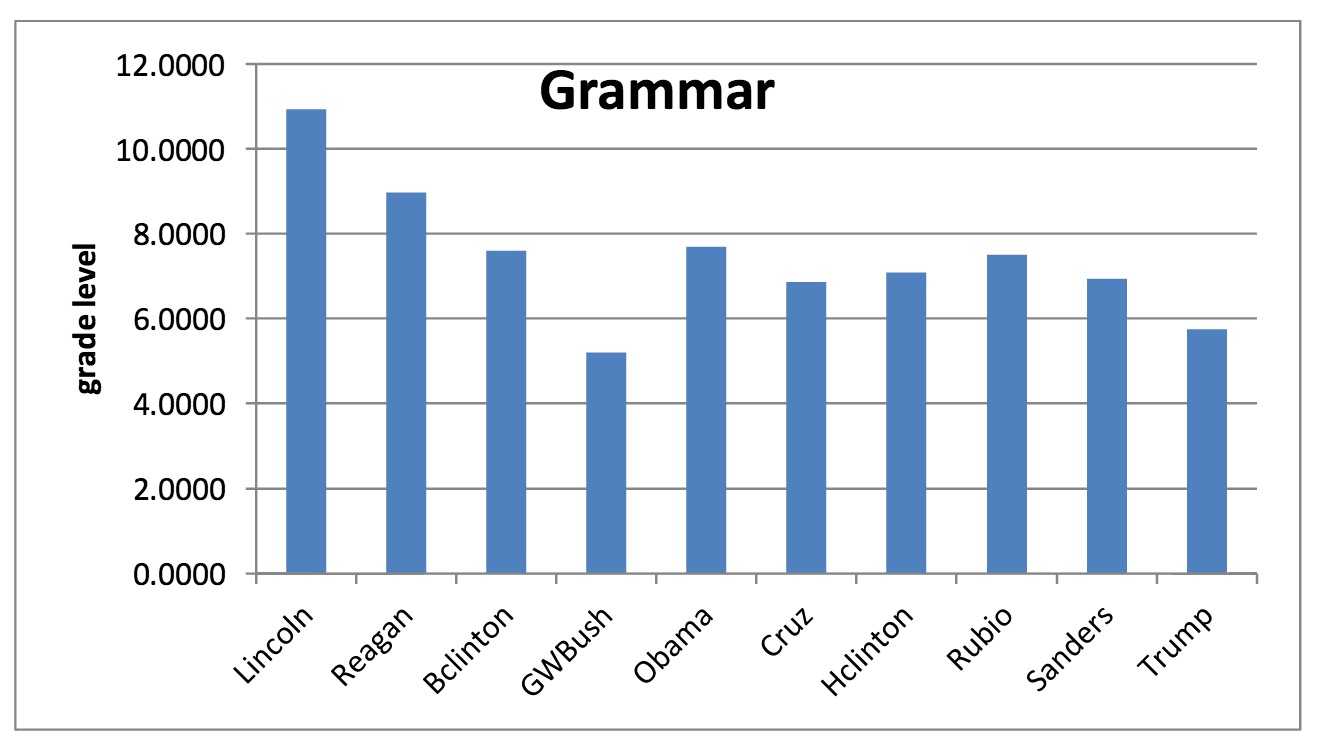
It’s been 155 years since Lincoln took office as the 16th President of the United States. Yet, during this period many of our political leaders and pretenders to the throne have spoken to us in increasingly simplistic language.
In 2000 then President George W. Bush commenting on educational programs remarked, “What’s not fine is rarely is the question asked, are, is our children learning?” Since then it seems that many of our children and adults have indeed not been learning. This despite the growing complexity of our local and global politics.
Thus, the relentless march towards ever-increasing “dumbed-down-ness” brings me to the current election cycle. Could there be any better place to look? A research study out of Carnegie Mellon University’s Language Technologies Institute assessed the reading level of current and recent presidential campaign speeches.
The candidate with the lowest overall readability score — vocabulary and grammar — is Donald Trump. His grammar compares to that used by children aged 11 and under. Researchers also looked back at speeches by past Presidents and found that the language of Abraham Lincoln and Ronald Reagan was almost twice as advanced. George W. Bush fared the worst on grammar alone — his so-called Bushisms are the stuff of books and folklore — but his vocabulary scored significantly higher than Donald Trump. More recently, President Obama, and Senators Marco Rubio and Bernie Sanders showed the highest overall readability scores.
I have to assume that the current Republican frontrunner will spin the news of his appalling linguistic (dis-)abilities in his own inimitable way — after all, 4th grade language skills will reach a significantly larger proportion of the US population, albeit mostly non-voting age, than that of his more cerebral and elitist opponents.
Check out the entire report, “A Readability Analysis of Campaign Speeches from the 2016 US Presidential Campaign“. Read more, here.
Image: Readability levels of campaign speeches. Snapshot from report, A Readability Analysis of Campaign Speeches from the 2016 US Presidential Campaign.
